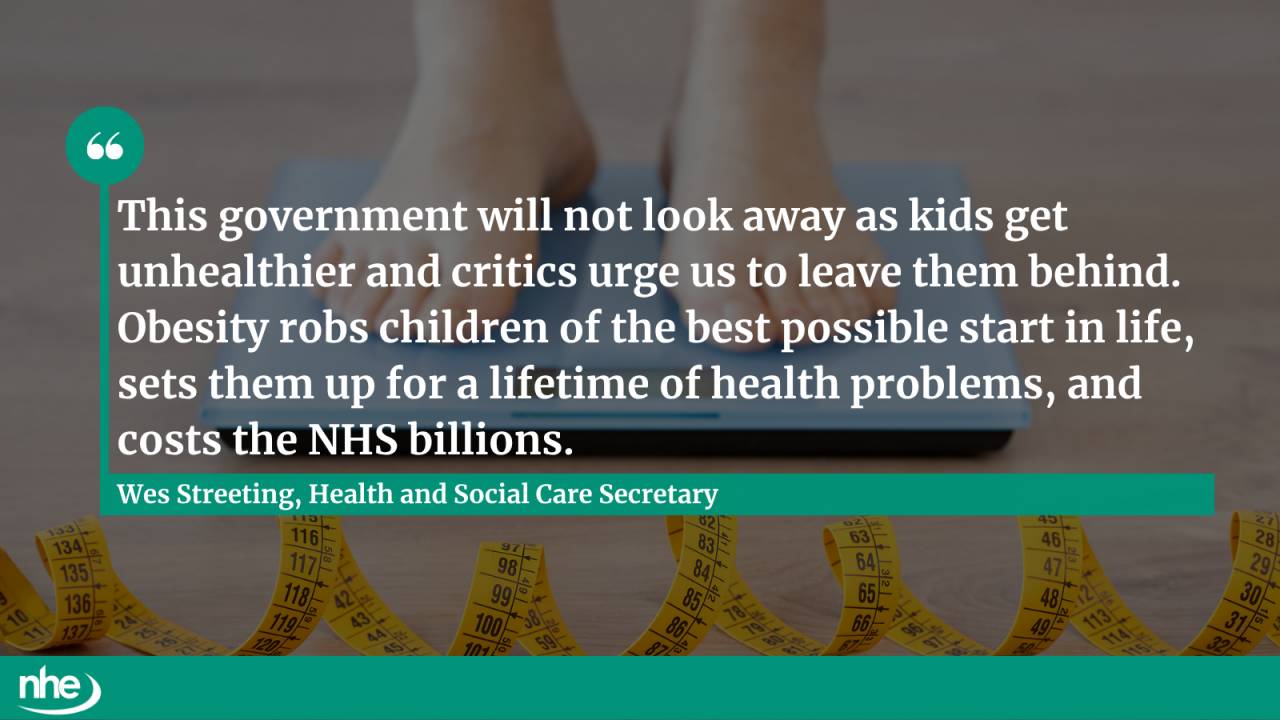The government has unveiled a comprehensive strategy to tackle childhood obesity, following shocking new data showing rising rates among children in England – particularly in deprived areas and among Black ethnic groups.
Speaking on the findings, the Health and Social Care Secretary declared the government “won’t look away as kids become unhealthier,” reaffirming its commitment to get children healthier and more active.
Data from over 1.1 million children measured in state-maintained schools during the 2024–25 academic year revealed that 10.5% of reception children (age 4–5) are living with obesity, whilst 22.2% of year 6 children (age 10–11) are living with obesity. Alongside this, obesity rates are more than double in the most deprived areas compared to the least.
This marks the highest obesity prevalence in reception since records began in 2006–07 (excluding the pandemic peak).
The government is acting swiftly with a series of targeted interventions, including:
- Restrictions on junk food advertising before 9pm and online
- Ban on promotions like ‘BOGOF’ and ‘3 for 2’ on unhealthy foods
- Consultation to ban high-caffeine energy drinks for under-16s
- Expanded free school meals for children in households on Universal Credit
- Universal free breakfast clubs for all primary school children
- Revised school food standards to ensure nutritious meals
- New guidelines for baby food manufacturers to reduce sugar and salt
Wes Streeting, Health and Social Care Secretary, said:
“This government will not look away as kids get unhealthier and critics urge us to leave them behind. Obesity robs children of the best possible start in life, sets them up for a lifetime of health problems, and costs the NHS billions.
“Today’s figures show the extent of the problem and the need to act now, which is exactly what we’re doing - in schools, on sports pitches and online - to make healthy choices the easy choices, support families and turn the tide on childhood obesity. This is prevention, not punishment, and will help families and children across the country.”

These measures are expected to remove 7.2 billion calories annually from children’s diets, prevent obesity in up to 40,000 children, and deliver £2 billion in health benefits and £180 million in NHS savings over 25 years.
To support physical activity and development, the government will invest £400 million in grassroots sport facilities, introduce School Sports Partnerships, and launch a new Enrichment Framework with school profiles to inform parents.
These reforms align with the 10 Year Health Plan and aim to close health inequalities, improve educational outcomes, and give every child the best start in life.
Image credit: iStock



















